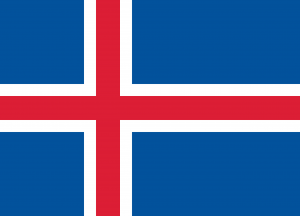Language/Icelandic/Vocabulary/Health
Hi Icelandic learners! 😊
In this lesson, we will learn about Icelandic vocabulary related to Health. We will also discuss some cultural factors that could influence health in Iceland. It is important to have a good understanding of these terms to communicate effectively in Icelandic. By the end of this lesson, you should be able to have a basic conversation about health-related issues in Iceland. Let's get started!
Consider exploring these related pages after completing this lesson: asking for help & Colors.
Health and Iceland[edit | edit source]
Icelandic people are known for being healthy and having a long life expectancy. There are many factors that contribute to this, such as the country's natural environment and a balanced diet. Additionally, Iceland has a well-developed healthcare system that provides universal access to medical care. Health education is also an important component of Icelandic society, with schools providing comprehensive sexual education and students receiving education on mental health issues.
Vocabulary[edit | edit source]
Here are some important health-related words and phrases in Icelandic:
| Icelandic | Pronunciation | English |
|---|---|---|
| sjúklingur | ['sjuːk.lɪŋ.ɡʏr] | patient |
| lækningar | ['laiːk.na.rɪnɡ] | treatment |
| lyf | [lɪf] | medication |
| lyfjadósa | ['lɪf.ja.doː.sa] | pill bottle |
| sótt | [soʊt] | illness |
| bólusetning | ['bo:.ly.sɛt.nɪŋ] | vaccination |
| höfuðverk | ['hœy.vʏrtkʰ] | headache |
| hósta | ['hous.ta] | to cough |
| kvef | [kʰvev] | cold |
| hausverkur | ['høys.vɛr.kʏr] | migraine |
| brjóstverkur | ['prjoust.vɛr.kʏr] | chest pain |
| höfuðverkslyf | ['hœy.vʏrtkʰs.lɪf] | headache medicine |
| blóðþrýstingur | ['blo:.ðθruːɪs.tɪŋ.kʏr] | blood pressure |
| ónæmi | ['ou.nai:.mɪ] | immunity |
| veikindi | ['vɛiː.cɪn.tɪ] | sickness |
| náttúruvár | ['na.tʰy:rʏ.va:r] | natural remedies |
Now let's practice these words in context.
- Dialogue:
- Person 1: Ég er mér mjög slæmt. Hausverkur minn er mjög erfitt. ('I am feeling very bad. My migraine is very severe.')
- Person 2: Ó nei! Ég vona að þú getir fengið höfuðverkslyf á apótekinu. ('Oh no! I hope you can get headache medicine at the pharmacy.')
- Person 1: Já, ég er að velta því fyrir mér. ('Yes, I am considering it.')
- Person 2: Ég mun hjálpa þér að finna hvar á að fá það. ('I will help you find where to get it.')
- Translation:
- Person 1: I am feeling very bad. My migraine is very severe.
- Person 2: Oh no! I hope you can get headache medicine at the pharmacy.
- Person 1: Yes, I am considering it.
- Person 2: I will help you find where to get it.
Cultural Information[edit | edit source]
- Healthcare System: Iceland has a universal healthcare system that provides access to primary and specialized care services. The healthcare system is funded by taxes and is considered to be of high quality. It is also accessible to all citizens and legal residents.
- Natural Remedies: Iceland has a rich tradition of using natural remedies to treat illnesses. Many Icelanders use local ingredients such as moss, wildberries, and herbs. These remedies are often used in conjunction with western medicine.
- Diet: A balanced diet is an important aspect of Icelandic culture. The traditional Icelandic diet includes fish, lamb, and dairy products. Vegetables and fruits are also widely consumed, and organic food is becoming increasingly popular.
- Outdoor lifestyle: Iceland's natural terrain provides many opportunities for outdoor recreation, such as hiking, skiing, and swimming. Engaging in physical activity is an important aspect of Icelandic culture and contributes to the overall health of its citizens.
- Mental Health: Mental health is an important component of Icelandic society, with schools providing students with education on mental health issues. The country has a high rate of depression and suicide, but the government has implemented programs to help individuals dealing with these issues.
Now that you have learned some important vocabulary related to health and some cultural aspects related to health in Iceland, you should feel more confident discussing health-related issues in Icelandic. To improve your Icelandic Vocabulary, you can also use the Polyglot Club website. Find native speakers and ask them any questions!
➡ If you have any questions, please ask them in the comments section below.
➡ Feel free to edit this wiki page if you think it can be improved. 😎
Other Lessons[edit | edit source]
- General Home
- Feelings and Emotions
- Emergency survival phrases Neyðar og lífsbjargarfrasar
- Languages
- traveling or buying
- Kitchen
- Days of the week
- Asking for directions Að biðja um hjálp og leiðbeiningar
- Colors

